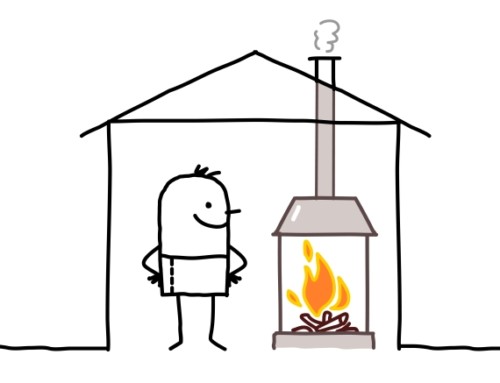In this article, I discuss how you can become less anxious in social situations by recognizing how your beliefs affect your and other people’s behaviour.
In my work as a Calgary psychologist and a Cochrane psychologist, I often work with clients who become overly anxious in social situations. The discomfort these people experience can be so strong that will often avoid social situations or leave social events prematurely.
A key factor which contributes to excess anxiety in social situations is negative thinking the person has regarding how others are likely to respond to them when they enter such situations. This negative thinking sets in motion a negative self-fulfilling prophecy in which having negative beliefs leads to a sequence of behaviours which result in the negative beliefs being confirmed. This then leads the person to experience even more discomfort in social situations which leads to even greater avoidance of these situations.
Fortunately, there is substantial evidence that making the person aware of their negative beliefs and how these set in motion a self-fulfilling prophecy can result in the person taking steps to interrupt this chain of negative events. In the following sections, I will discuss how self-fulfilling prophecies contribute to social anxiety issues and how you can address them.
How self-fulfilling prophecies contribute to social anxiety issues
People with social anxiety issues are typically hampered by self-fulfilling prophecies which sustain their negative thinking and discomfort in social situations. Because of negative experiences they have had in social interactions, they typically enter social situations with negative expectations regarding how others will behave toward them.
These negative expectations lead the person to engage in negative behaviours toward the other people in these situations. These include behaving in a quiet and withdrawn manner and exhibiting negative nonverbal signals such as lack of smiling. These negative behaviours then produce negative behaviours from the other people toward them.
In turn, these negative behaviours from the other people confirm the person’s negative expectations. The thought the person has at these times is akin to the following: ‘I expected that they wouldn’t like me and would be unfriendly toward me–and I was right!” This apparent confirmation of the person’s negative expectations then leads the person to experience even more discomfort and engage in more avoidance of social situations. In other words, negative self-fulfilling prophecies perpetuate and exacerbate people’s social anxiety issues.
The first step to address self-fulfilling prophecies: Become aware of them
The first step in addressing self-fulfilling prophecies which contribute to social anxiety issues is to become aware of them. Having this awareness can by itself provide substantial relief from the distress a person experiences in social situations.
Realizing that the evidence of people disliking you has been tainted by your negative expectations casts a whole new light on your view of social interactions. That is, becoming aware that it is your behaviour which people have responded to negatively rather than some inherent unattractiveness provides hope and optimism.

Because you have control over your behaviour, you now have more positive expectations that people will respond favourably to you. This contrasts sharply with the consistent negative reactions you have come to expect up until your becoming aware of the power of self-fulfilling prophecies. In turn, having these new positive expectations makes it easier to consider engaging in more social interaction going forward as a way to reduce your anxiety in social situations.
The next step: Change your behaviour in social situations
The next step in addressing social anxiety issues is to change your behaviour in social situations. This entails taking steps to counteract the behaviours which stemmed from your previous negative expectations. Doing so will prevent the negative self-fulfilling prophecy from occurring.
For example, you can deliberately counteract the tendency to be quiet and withdrawn by actively engaging with other people. You can counteract negative nonverbal cues such as uninviting facial expressions by making it a point to smile at others.
Changing your behaviour in this manner will help to elicit positive reactions from other people. This will help reduce the negative thinking as well as the physical and emotional discomfort you have experienced in social situations to this point.
In turn, this will make it more doable for you to consistently enter social situations. This regular ‘exposure’ will, over time, lead to an even greater reduction in the anxiety you experience in social situations to the point that you can enjoy them.
In order to implement the strategies in this article, you may find it helpful to work with a psychologist who specializes in cognitive behavioural therapy (CBT).
May your self-fulfilling prophecies be positive ones,
Dr. Pat






Leave A Comment